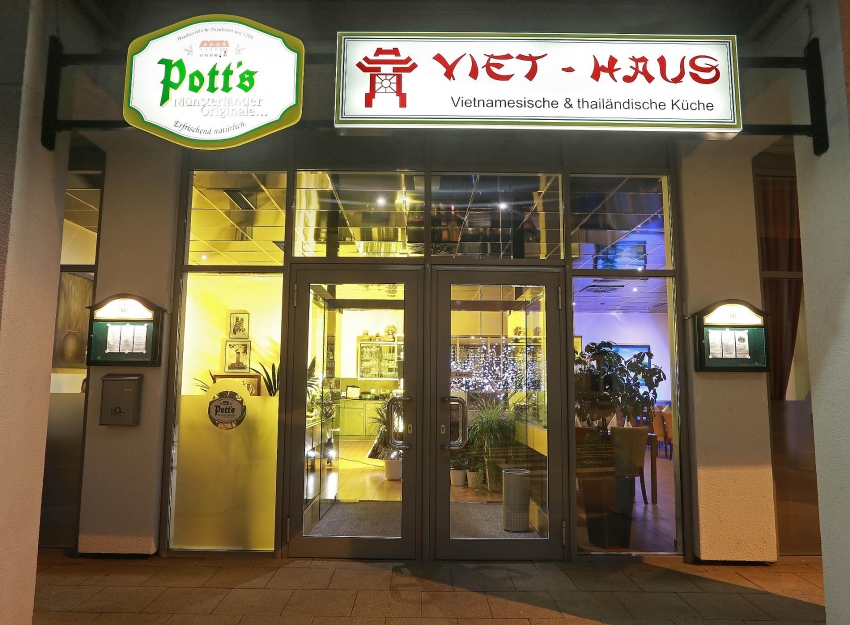ACV suffers bitter losses from Viethaus project
 |
| The Viethaus project was mired down in difficulties from the start |
The Government Office has collected comments from the ministries of Foreign Affairs, Finance, and Planning and Investment on how to deal with the Viethaus project based in Berlin (Germany) of Airports Corporation of Vietnam (ACV).
Earlier, the Ministry of Transport (MoT), which is ACV’s management authority, in a report to Deputy Prime Minister Truong Hoa Binh, has floated the idea of terminating the project, based on ACV proposal.
Accordingly, in case the German government does not offer long-term space leasing at a favourable rate and long-term visa to its staff, ACV will ask its member unit Southern Airports Services JSC (Sasco) to return the space in the third quarter of this year when the space leasing contract expires and stop the investment project according to Vietnamese and German laws.
Last October, the Government Inspectorate’s conclusion No.2569/K-TTCP confirmed that Viethaus was ineffective and was losing investment capital.
According to the Government Inspectorate, by the end of 2015, Viethaus project’s cumulative losses came to EUR13.4 million ($16.4 million).
It would be extremely hard for ACV to recoup its investment capital of EUR763,280 ($934,100), in addition to the EUR8.85 million ($10.83 million) guarantees which had turned into debts and VND47.06 billion ($2.09 million) of other debts.
Viethaus was initially a cooperative deal between Sasco and German partner HMSky GMbH in 2005.
In 2010, the German partner transferred its entire stake in Viethaus to Vietnamese corporate entity Global Telecom Service JSC.
After three revisions, the project reported EUR9.41 million ($11.5 million) in total investment capital, of which the investors contributed EUR2.63 million ($3.2 million) (Sasco contributed $934,100 and Global Telecom $2.28 million).
| The position of Viethaus was touted as one of the reasons the project faced difficulties from the start. |
The position of Viethaus was touted as one of the reasons the project faced difficulties from the start. The entire space of Viethaus is part of an old residential building in Berlin, leading to high renovation costs.
During the 10 years from 2005-2015, Viethaus’s total expenses (loan interest, human resources, space, and amortisation costs) came to EUR14.5 million ($17.75 million).
In the meantime, the project’s total revenue was a mere EUR7 million ($8.5 million), less than half of the JV’s total expense.
In 2016, in a bid to restructure the project, ACV agreed with another of its members, Vietnam Aviation Transport JSC (Satsco), to found a fully-owned subsidiary in Germany to cooperate with Sasco to exploit the Viethaus building.
Two years later, Satsco was mired down in the same difficulties as Sasco, with revenue far below its total expenses due to inflated space leasing charges.
“Satsco is negotiating to close the cooperation deal with Sasco at the Viethaus project,” a source from ACV revealed.
What the stars mean:
★ Poor ★ ★ Promising ★★★ Good ★★★★ Very good ★★★★★ Exceptional
Related Contents
Latest News
More News
- NAB Innovation Centre underscores Vietnam’s appeal for tech investment (January 30, 2026 | 11:16)
- Vietnam moves towards market-based fuel management with E10 rollout (January 30, 2026 | 11:10)
- Vietnam startup funding enters a period of capital reset (January 30, 2026 | 11:06)
- Vietnam strengthens public debt management with World Bank and IMF (January 30, 2026 | 11:00)
- PM inspects APEC 2027 project progress in An Giang province (January 29, 2026 | 09:00)
- Vietnam among the world’s top 15 trading nations (January 28, 2026 | 17:12)
- Vietnam accelerates preparations for arbitration centre linked to new financial hub (January 28, 2026 | 17:09)
- Vietnam's IPO market on recovery trajectory (January 28, 2026 | 17:04)
- Digital economy takes centre stage in Vietnam’s new growth model (January 28, 2026 | 11:43)
- EU Council president to visit Vietnam amid partnership upgrade (January 28, 2026 | 11:00)

 Tag:
Tag:

























 Mobile Version
Mobile Version